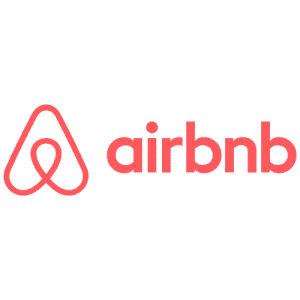0
You have 0 items in your cart

Cultivating great organizational culture is no longer just an option, it’s a must. Today’s workforce considers it as much as they consider their salary and benefits. In fact, good company culture is almost in line with all other traditional benefits.
Be passionate about the culture and the business, and remain positive because it inspires others.

Most organizations focus on the business side over the people side. As a result, they promote an unbalanced work environment. To some degree, this is understandable. After all, if you don’t pay attention to your finances, you’ll be out of business.
However, ignoring the people side usually leads to low morale, poor employee attitude. This, in turn, results in low productivity and poor financial performance. An unbalanced work environment doesn’t fully tap the largest resource in every organization: its employees.

When employees can fulfill these and other basic needs on the job, they naturally bring more of themselves to a task. They will engage- taking responsibility not just for their individual work but for the overall success of the organization. When employees feel empowered and have a strong connection to their jobs- employees have the commitment to the quality of work they create in the organization, producing higher quality products for your customers.
At the employee level, a strong company culture is made up of high morale, creativity, responsibility, motivation, trust, productivity, flexibility, and responsiveness.

The workplace shouldn’t be a place where employees dread every day. Every employee should be eager to go to their place of work. In fact, they should have a difficult time leaving at the end of the day because they love their challenges, the atmosphere, and their colleagues. Jobs shouldn’t be a source of stress. While the work itself may be challenging, the culture shouldn’t add to the stress. Actually, the culture should be designed in a way as to alleviate this stress.
This is the main reason why great culture is important. Culture sustains employee happiness.

Culture is also the number one recruiting tool. If your enterprise is looking to hire talented people, it won’t make any sense to limit employee freedom by filling up the space with office cubicles. You’ll end up attracting and hiring commonplace employees, and you’ll be a mundane company. Alternatively, if you have an open working environment with maximum employee freedom and transparency, you’ll attract and hire the right talent. From the second people walk into the office, they should immediately know that this is a different company with a unique culture.
A Great Culture provides the context for people to deliver their best work
 According to the Employees:
According to the Employees:Great workplaces are built by great company culture– and not a list of programs and benefits.
The primary factor in these work environments is TRUST. From an employee standpoint, a great workplace is one where they:
Trust is the primary ingredient in great workplaces. It is created through leader’s credibility, the respect with which workers feel they are treated, and the extent to which every worker is treated fairly and justly.
 According to the Management:
According to the Management:From the management viewpoint, a great workplace is one in which they:
There are several ways where leaders and managers create an environment of trust. Great workplaces realize organizational goals by inspiring, listening and speaking. They have workers who give their best by developing, caring and thinking. And they function together as a team.
Since the company culture influences everyone and everything, a great company culture creates positive changes across the organization. Here is a breakdown of some of the benefits.
 Financial Benefits.
Financial Benefits.At the financial level, a great company culture yields dramatic and sustained increase in performance and productivity. This is no surprise given that experts estimate that an ordinary employee contributes only 25 percent of their potential. A culture that engages its employees in every aspect of the business is far more productive. A 10 percent increase in productivity is the least projected. At the same time, unit productivity often doubles after every two years. Because the main reason for improving company culture is profit, increased revenue and profits are in inevitable.
A great culture brings a greater openness to change. As trust and responsibility increases, employees don’t just initiate improvements in their jobs, they also get actively engaged with the environment. In the long run, they improve ideas and make the company more competitive. For instance, customer service reps, through conversations with clients, learn a lot about the customer’s needs. In a great culture, this information is smoothly communicated to the product development and marketing departments. This creates a valuable flow of information across the organisation. For constant improvement and innovation of your products/services.
 Happiness and Satisfaction
Happiness and SatisfactionThird but possibly most important, there are a few things that are more satisfying than working for a company with a great culture. It’s a real pleasure being a part of a company where people enjoy each other’s company, where they enthusiastically cooperate with one another, and where people sincerely recognize each other for their individual contributions to the success of the team. Happiness and satisfaction go hand in hand with increased productivity.
A great company culture is a powerful recruiting tool. Companies with an open and free workplace where people enjoy working and have limitless opportunities for growth and creativity, often attract the best talent. Another measure of a healthy workplace culture is that existing employees urge their family and friends to join. When employees do this, they are usually very selective, inviting only top candidates who they know will perform well.
 Customer service
Customer service As culture develops, leaders learn to uphold the quality of everyone’s experience better, both inside the company and outside of the company. Most customers are highly used to their client’s cultures. As such, they can easily tell when things are doing well and when they aren’t. From experience, a customer who loves being associated with a particular company will return more often and even recommend it to others.
Motivation flourishes in a great culture that recognizes employee’s personal work and allows them to satisfy their basic needs at work. When employees are recognized and appreciated for their individual tasks, the two-way benefits are immense and endless.
 Morale
MoraleHigh morale is a recipe for success. It is closely connected to company loyalty, pride, trust, and purpose- all the qualities that cultivate and nurture culture as it develops.

 1. Zappos
1. ZapposHeadquartered in Las Vegas, Zappos is a subsidiary of Amazon (having been sold for 1.2 billion in 2009). It has about 1500 employees and produces more than $2 billion in revenues annually. Zappos has become synonymous with great culture as it is with the shoes it sells online. So what does its culture look like?
It all starts with a cultural fit interview, which carries half the weight and determines whether a candidate is a right fit for the company. New employees are then trained for four weeks after which they are given a chance to quit in case they feel they don’t fit. In fact, they are offered $2000 to quit.
Ten core values are instilled in every employee. Salary increment and promotion comes from passing skill tests and demonstrating increased capability, and not from office politics. Additionally, the company sets aside considerable budgets for employee team building and culture development.
Amazing benefits and a great workplace that’s not only enjoyable but also dedicated to making customers happy is a definitive principle of Zappos great company culture. The CEO, Tony Hsieh believes that when you cultivate a great company culture, excellent customer service, and a great brand will naturally follow.
 2. Mindvalley
2. MindvalleyLocated in Malaysia, Mindvalley currently has roughly 200 employees with over 40 nationalities. The company makes it a point to celebrate this diversity by including a culture day, which takes place fortnightly on Thursdays according to a different cultural theme each time.
But how does this company, with less than 200 employees continue to dominate the mainstream? After all, there are many companies hiring from different countries. In a word, it is all about a great culture.
Mindvalley doesn’t believe in a one-sided employee-organisation contribution. Instead, they seek to learn about every person who works at the company and strive to help them become their best self.
Additionally, they have a secret society for platonic love, appreciation, smiles and happiness (SPASH) whose primary purpose is to make a SPLASH on their amazing culture while maintaining their identities a top-secret. Mindvalley is ambitiously determined to unleash the full potential of humans and move planet earth forward.
 3. Southwest Airlines
3. Southwest AirlinesThe airline industry is often ridiculed for sullen employees and poor customer service. However, Southwest Airlines defies this trend thanks to its excellent culture.
If you’re one of the 100 million passengers who fly the Southwest Airlines, you might have already noticed their exceptional service- friendly employees who go out of their way to ensure every customer is happy. In fact, for most people, service is the main reason why they are defiantly loyal to Southwest Airlines.
To uphold its culture, Southwest urges every one of its employees to work together for a common goal. A paycheck is usually enough to get many employees to work well, but inspiring them will encourage them to go the extra mile.
The airlines have been in operation for 43 years. And like all true customer service champs, their employees are always striving to improve their services, boost their culture and attract even more loyal customers.
 4. Google
4. GoogleIt is pretty well known that Google has an amazing culture and obviously not the typical corporate culture. In fact, if you just look at the pictures in Googleplex, you’ll notice that it looks just like an adult adventure playground, rather than a place of work.
But Google’s success can be significantly credited to its culture. Google even goes to the extent of hiring people whose main job is to keep employees happy and productive. While this may sound controlling, it is how this innovative organization operates.
So can the culture at Google teach you anything? Yes, of course.
First, Google has a flat structure, which simply means they have minimal middle and upper management. This allows every employee to have more creativity. Innovation and problem-solving abilities are encouraged. Each employee, therefore, has the ability to make major decisions on any project.
This open culture allows a free flow of information across the entire company. Everyone can share their ideas and opinions. Additionally, they have a TGIF meeting every Friday where employees meet with executives to exchange ideas and ask questions. Google supports a transparent and open line of communication through emails, meetings, and open door policy in the whole company. Also, company information is open to each and every employee.
 5. Airbnb
5. AirbnbThe first thing you should understand about Airbnb’s approach to culture is the purpose and vision shared by one of its founders- Brian Chesky.
When you walk into their SOMA, San Francisco office, you immediately feel as if you are entering a contemporary city apartment in any part of the world. This deliberately aligns with their mission which is to create a world where anyone can belong.
Looking out across the foyer from inside the headquarters, you peer into a kaleidoscope of rooms which have been meticulously built to look like some of their innovative Airbnb rooms around the world, including the apartment of one of the founders, marked proudly with a plaque telling the story of the home and the host.
Levy, one of the founders, says that they are focused on starting out with every employee, and then developing them up the commitment curve, to the point where they resonate with the company’s values and goals.
It is important to understand that many of these companies offer the same set of perks, but perks alone is not a measure of how great a company’s culture is. By empowering employees they will reach new levels of commitment and care for your company’s growth. The ultimate determinant of great company culture is how employees are treated and what level of trust and responsibility they are given when doing their jobs.
Culture Happens. Whether planned or not, all companies have a culture. So why not create a culture we love?
This Privacy Policy describes how SmartMinds Enterprise OÜ (“SmartMinds”, “we”, “us” or “our”) handles information about yourself that you may provide us with through your use of the Site or Service (“Personal Information”) and should be read along with our Terms of Use posted here, and all other operating rules and additional terms and conditions published on our Site.
SmartMinds is committed to keeping your information secure and managing it in accordance with our legal responsibilities under privacy and data protection laws where we operate. SmartMinds uses your Personal Information only in accordance with this Privacy Policy and Applicable Law. SmartMinds does not sell your Personal Information to third parties. Any capitalized terms not defined in this Privacy Policy are defined in the Terms of Use.
We employ the use of cookies. By using SmartMinds‘s website you consent to the use of cookies in accordance with SmartMinds’s privacy policy.
Most of the modern day interactive web sites use cookies to enable us to retrieve user details for each visit. Cookies are used in some areas of our site to enable the functionality of this area and ease of use for those people visiting. Some of our affiliate / advertising partners may also use cookies.
Unless otherwise stated, SmartMinds and/or it’s licensors own the intellectual property rights for all material on SmartMinds All intellectual property rights are reserved. You may view and/or print pages from https://smartminds.one for your own personal use subject to restrictions set in these terms and conditions.
You must not:
We will approve link requests from these organisations if we determine that: (a) the link would not reflect unfavourably on us or our accredited businesses (for example, trade associations or other organisations representing inherently suspect types of business, such as work-at-home opportunities, shall not be allowed to link); (b)the organisation does not have an unsatisfactory record with us; (c) the benefit to us from the visibility associated with the hyperlink outweighs the absence of SmartMinds; and (d) where the link is in the context of general resource information or is otherwise consistent with editorial content in a newsletter or similar product furthering the mission of the organisation.
These organisations may link to our home page, to publications or to other Web site information so long as the link: (a) is not in any way misleading; (b) does not falsely imply sponsorship, endorsement or approval of the linking party and its products or services; and (c) fits within the context of the linking party’s site.
If you are among the organizations listed in paragraph 2 above and are interested in linking to our website, you must notify us by sending an e-mail to Please include your name, your organisation name, contact information (such as a phone number and/or e-mail address) as well as the URL of your site, a list of any URLs from which you intend to link to our Web site, and a list of the URL(s) on our site to which you would like to link. Allow 2-3 weeks for a response.
Approved organizations may hyperlink to our Web site as follows:
No use of (name)’s logo or other artwork will be allowed for linking absent a trademark license agreement.
Without prior approval and express written permission, you may not create frames around our Web pages or use other techniques that alter in any way the visual presentation or appearance of our Web site.
We shall have no responsibility or liability for any content appearing on your Web site. You agree to indemnify and defend us against all claims arising out of or based upon your Website. No link(s) may appear on any page on your Web site or within any context containing content or materials that may be interpreted as libelous, obscene or criminal, or which infringes, otherwise violates, or advocates the infringement or other violation of, any third party rights.
We reserve the right at any time and in its sole discretion to request that you remove all links or any particular link to our Web site. You agree to immediately remove all links to our Web site upon such request. We also reserve the right to amend these terms and conditions and its linking policy at any time. By continuing to link to our Web site, you agree to be bound to and abide by these linking terms and conditions.
If you find any link on our Web site or any linked web site objectionable for any reason, you may contact us about this. We will consider requests to remove links but will have no obligation to do so or to respond directly to you.
Whilst we endeavour to ensure that the information on this website is correct, we do not warrant its completeness or accuracy; nor do we commit to ensuring that the website remains available or that the material on the website is kept up to date.
We have a 30-day Money Back Guarantee when purchasing Realized Mind, all we ask if that within the 30 days to complete the learning experience and if you truly feel you did not receive any value from the experience we are happy to refund your payment and close your account.
To the maximum extent permitted by applicable law, we exclude all representations, warranties and conditions relating to our website and the use of this website (including, without limitation, any warranties implied by law in respect of satisfactory quality, fitness for purpose and/or the use of reasonable care and skill). Nothing in this disclaimer will:
The limitations and exclusions of liability set out in this Section and elsewhere in this disclaimer: (a) are subject to the preceding paragraph; and (b) govern all liabilities arising under the disclaimer or in relation to the subject matter of this disclaimer, including liabilities arising in contract, in tort (including negligence) and for breach of statutory duty.
To the extent that the website and the information and services on the website are provided free of charge, we will not be liable for any loss or damage of any nature.
